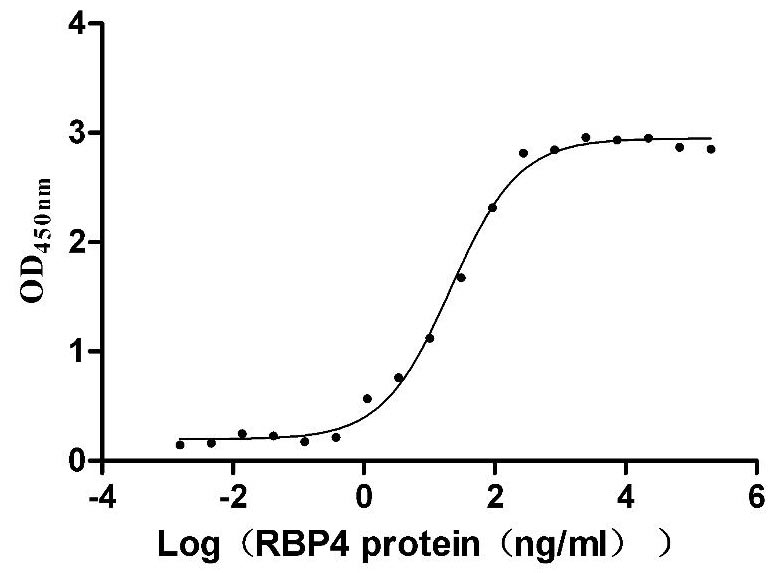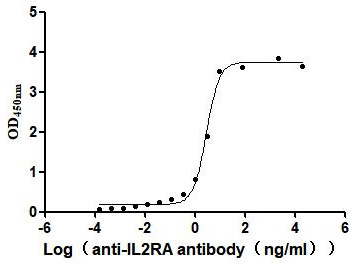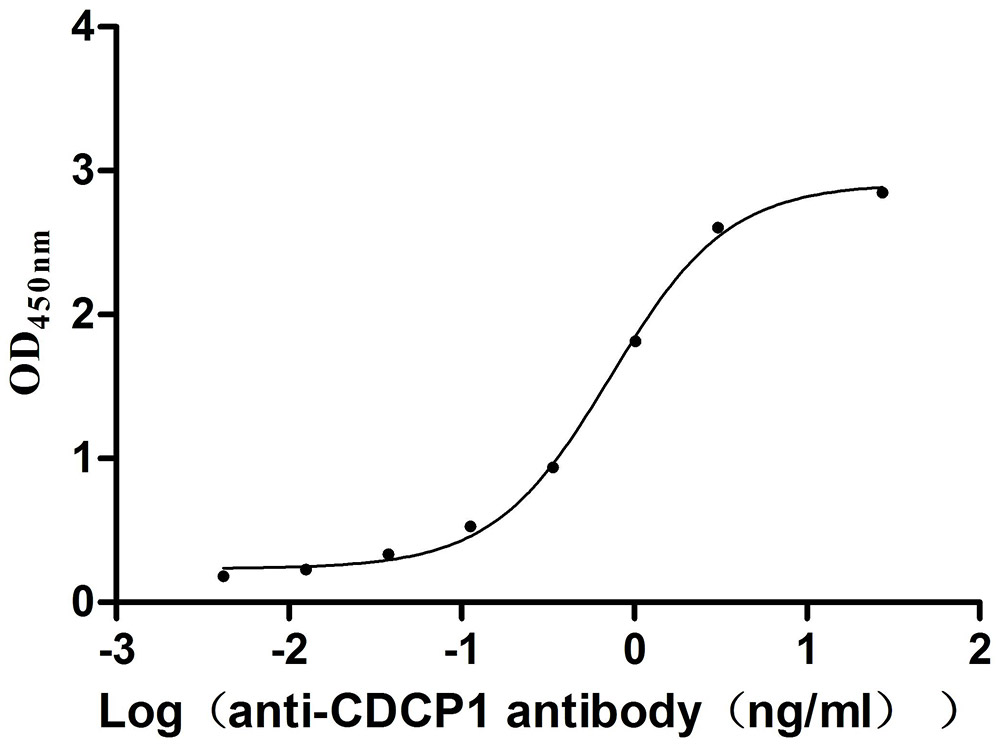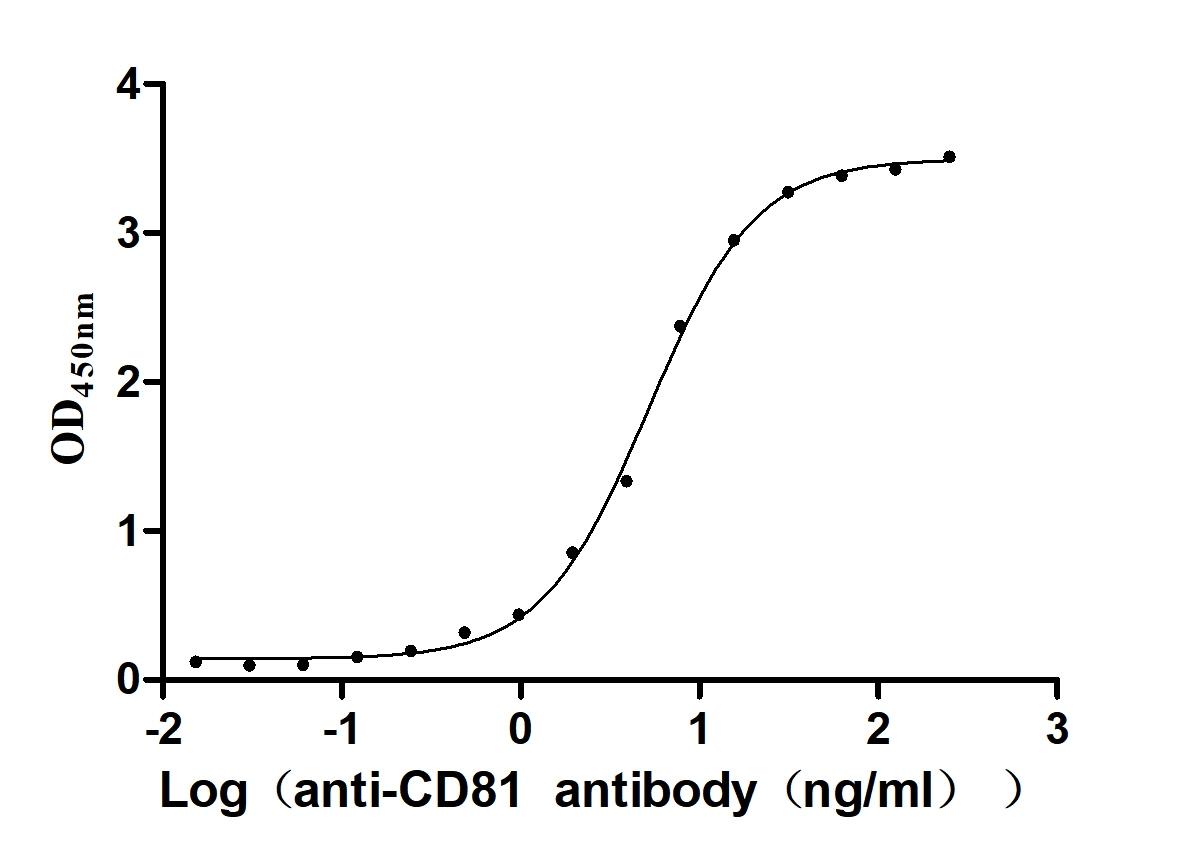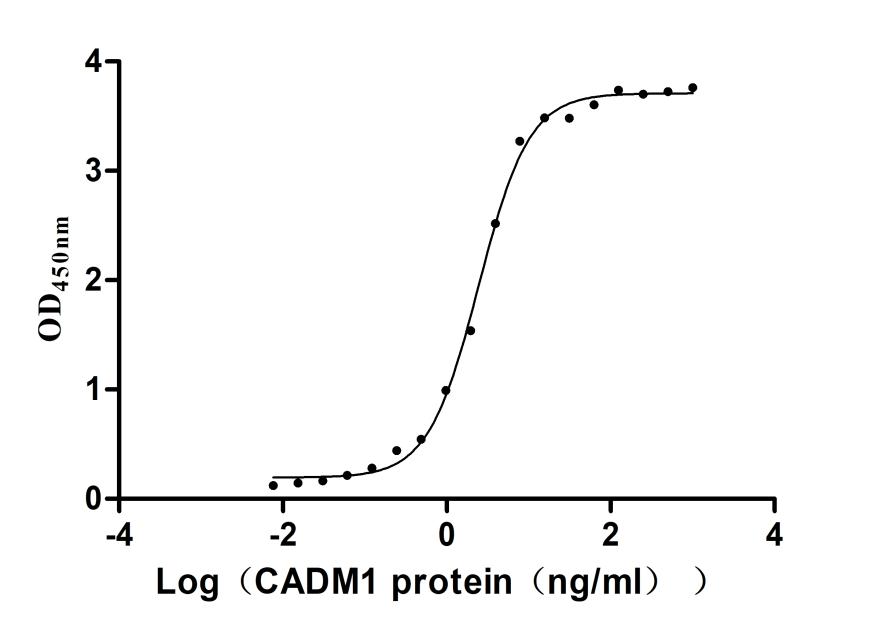Recombinant Human Transcription factor MafB (MAFB)
-
中文名称:人MAFB重组蛋白
-
货号:CSB-YP897570HU
-
规格:
-
来源:Yeast
-
其他:
-
中文名称:人MAFB重组蛋白
-
货号:CSB-EP897570HU
-
规格:
-
来源:E.coli
-
其他:
-
中文名称:人MAFB重组蛋白
-
货号:CSB-EP897570HU-B
-
规格:
-
来源:E.coli
-
共轭:Avi-tag Biotinylated
E. coli biotin ligase (BirA) is highly specific in covalently attaching biotin to the 15 amino acid AviTag peptide. This recombinant protein was biotinylated in vivo by AviTag-BirA technology, which method is BriA catalyzes amide linkage between the biotin and the specific lysine of the AviTag.
-
其他:
-
中文名称:人MAFB重组蛋白
-
货号:CSB-BP897570HU
-
规格:
-
来源:Baculovirus
-
其他:
-
中文名称:人MAFB重组蛋白
-
货号:CSB-MP897570HU
-
规格:
-
来源:Mammalian cell
-
其他:
产品详情
-
纯度:>85% (SDS-PAGE)
-
基因名:MAFB
-
Uniprot No.:
-
别名:Kreisler; Kreisler (mouse) maf related leucine zipper homolog; Kreisler maf related leucine zipper homolog; KRML; MAF bZIP transcription factor B; Maf-B; Mafb; MAFB/Kreisler basic region/leucine zipper transcription factor; MAFB_HUMAN; MGC43127; Segmentation protein KR; Transcription factor MafB; V maf musculoaponeurotic fibrosarcoma oncogene homolog B (avian); V-maf musculoaponeurotic fibrosarcoma oncogene homolog B
-
种属:Homo sapiens (Human)
-
蛋白长度:full length protein
-
表达区域:1-323
-
氨基酸序列MAAELSMGPE LPTSPLAMEY VNDFDLLKFD VKKEPLGRAE RPGRPCTRLQ PAGSVSSTPL STPCSSVPSS PSFSPTEQKT HLEDLYWMAS NYQQMNPEAL NLTPEDAVEA LIGSHPVPQP LQSFDSFRGA HHHHHHHHPH PHHAYPGAGV AHDELGPHAH PHHHHHHQAS PPPSSAASPA QQLPTSHPGP GPHATASATA AGGNGSVEDR FSDDQLVSMS VRELNRHLRG FTKDEVIRLK QKRRTLKNRG YAQSCRYKRV QQKHHLENEK TQLIQQVEQL KQEVSRLARE RDAYKVKCEK LANSGFREAG STSDSPSSPE FFL
-
蛋白标签:Tag type will be determined during the manufacturing process.
The tag type will be determined during production process. If you have specified tag type, please tell us and we will develop the specified tag preferentially. -
产品提供形式:Lyophilized powder
Note: We will preferentially ship the format that we have in stock, however, if you have any special requirement for the format, please remark your requirement when placing the order, we will prepare according to your demand. -
复溶:We recommend that this vial be briefly centrifuged prior to opening to bring the contents to the bottom. Please reconstitute protein in deionized sterile water to a concentration of 0.1-1.0 mg/mL.We recommend to add 5-50% of glycerol (final concentration) and aliquot for long-term storage at -20℃/-80℃. Our default final concentration of glycerol is 50%. Customers could use it as reference.
-
储存条件:Store at -20°C/-80°C upon receipt, aliquoting is necessary for mutiple use. Avoid repeated freeze-thaw cycles.
-
保质期:The shelf life is related to many factors, storage state, buffer ingredients, storage temperature and the stability of the protein itself.
Generally, the shelf life of liquid form is 6 months at -20°C/-80°C. The shelf life of lyophilized form is 12 months at -20°C/-80°C. -
货期:Delivery time may differ from different purchasing way or location, please kindly consult your local distributors for specific delivery time.Note: All of our proteins are default shipped with normal blue ice packs, if you request to ship with dry ice, please communicate with us in advance and extra fees will be charged.
-
注意事项:Repeated freezing and thawing is not recommended. Store working aliquots at 4°C for up to one week.
-
Datasheet :Please contact us to get it.
相关产品
靶点详情
-
功能:Acts as a transcriptional activator or repressor. Plays a pivotal role in regulating lineage-specific hematopoiesis by repressing ETS1-mediated transcription of erythroid-specific genes in myeloid cells. Required for monocytic, macrophage, osteoclast, podocyte and islet beta cell differentiation. Involved in renal tubule survival and F4/80 maturation. Activates the insulin and glucagon promoters. Together with PAX6, transactivates weakly the glucagon gene promoter through the G1 element. SUMO modification controls its transcriptional activity and ability to specify macrophage fate. Binds element G1 on the glucagon promoter. Involved either as an oncogene or as a tumor suppressor, depending on the cell context. Required for the transcriptional activation of HOXB3 in the rhombomere r5 in the hindbrain.
-
基因功能参考文献:
- This study further confirmed that the targeted single nucleotide polymorphisms at MAFB were associated with Non-syndromic cleft lip with or without cleft palate case-parent trios from Western Han Chinese population PMID: 30024657
- These results suggest that MAFB and MAFF play critical roles in the antitumor effects of retinoids by regulating the expression of retinoid target genes such as TFPI2 and can be promising for developing therapies to combat HCC invasion. PMID: 29757260
- MAFB enhanced leukemogenesis by the naturally occurring Notch1 mutants, decreased disease latency, and increased disease penetrance. PMID: 29138297
- USP5 regulates c-Maf stability and multiple myeloma cell survival. PMID: 28933784
- Data suggest that SUMOylated MAFB promotes colorectal cancer tumorigenesis through cell cycle regulation. PMID: 27829226
- these results demonstrate that MAFB critically determines the acquisition of the anti-inflammatory transcriptional and functional profiles of human macrophages PMID: 28093525
- The present study demonstrated that miR-152 was downregulated in NPC tissues and cell lines. In addition, miR-152 expression and MAFB knockdown inhibited cell proliferation, migration and invasion, and miR-152 suppressed the expression of MAFB at the mRNA and protein levels. PMID: 28000885
- Epidermal differentiation gene regulatory networks are controlled by MAF and MAFB. PMID: 27097296
- Loss of MAFB Function Causes Duane Syndrome, Aberrant Extraocular Muscle Innervation, and Inner-Ear Defects. PMID: 27181683
- Results indicate a hepatocellular carcinoma (HCC) regulatory pathway involving MafB transcription factor and cyclin D1, the dysfunction of which drives proliferative character in HCC. PMID: 27448450
- DNMT3A R882 mutation is associated with elevated expression of MAFB and M4/M5 immunophenotype of acute myeloid leukemia blasts. PMID: 25721756
- MAFB is a regulator and a marker of adipose tissue inflammation, a process that subsequently causes insulin resistance PMID: 26115698
- MAFB represents a unique signature and likely important regulator of the primate islet beta-cell. PMID: 26554594
- The rs2902940A allele carriers in the MAFB conferred a decreased serum ApoAI level in controls and an increased risk of coronary artery disease and ischemic stroke. PMID: 26204962
- Gata3 interacted with Gcm2 and MafB, two known transcriptional regulators of parathyroid development, and synergistically stimulated the PTH promoter. PMID: 25917456
- MiR-223 negatively regulates the growth and migration of NPC cells via reducing MAFB expression, and this finding provides a novel insight into understanding miR-223 regulation mechanism in nasopharyngeal carcinoma tumorigenesis. PMID: 26055874
- rs6065259 was the most important single nucleotide polymorphism in MAFB (OR6065259-AA=0.45; 95% CI: 0.28 to 0.71; p=0.0027), followed by rs13041247; no association was found between rs11696257 and NSCLP. PMID: 24972815
- These findings indicate that only a few transactivation domain-specific mutations within MAFB cause multicentric carpotarsal osteolysis. PMID: 24989131
- Mafb is responsible for executing one branch of the SGN differentiation program orchestrated by the Gata3 transcriptional network PMID: 24327562
- MAFA, MAFB, NKX6.1, and PDX1 activity provides a gauge of islet beta cell function, with loss of MAFA (and/or MAFB) representing an early indicator of beta cell inactivity PMID: 23863625
- We identified MAFB mutations in all, including three novel missense mutations clustering within the hot spot mutation region PMID: 23956186
- data support the existence of a signaling cascade by which stimulation of macrophages with the IL-10 cytokine determines a sequential activation of STAT3 and MafB transcription factors PMID: 24472656
- miR-148a directly targeted MAFB mRNA by binding to the 3' untranslated region (3'UTR) and repressed MAFB protein expression PMID: 23225151
- the haematopoietic progenitor population can be the target for transformation in MafB-associated plasma cell neoplasias PMID: 22903061
- MAFB gene suggest a role for the development of orofacial clefting in hispanic population. PMID: 22753311
- Identified previously unreported missense mutations clustering within a 51 base pair region of the single exon of MAFB, validated by Sanger sequencing. PMID: 22387013
- The homozygous kreisler mutation eliminates most of rhombomere 5 and mis-specifies rhombomere 6, abolishes an early decrease in respiratory frequency within 10 min of hypoxia and an intrinsic hypoxic activation. PMID: 21839147
- findings confirmed the contribution of MAFB in the etiology of nonsyndromic orofacial clefts PMID: 21834038
- Abnormal expression of maf-b correlates with abnormal proliferation of acute myeloid leukemia cells. PMID: 21129249
- An association of ABCA4 and MAFB with non-syndromic cleft lip with or without cleft palate. PMID: 21567910
- MafB expression was higher in smokers with airflow limitation than in smokers without airflow limitation. PMID: 20969674
- These results suggest a suppressive effect of HBZ on Maf function, which may have a significant role in HTLV-1 related pathogenesis. PMID: 20506502
- MafB acts as a metastable switch to control expression of IFN-beta. PMID: 20581830
- Expression studies support a role for MAFB in palatal development. PMID: 20436469
- strong proliferative signals mediated by T-cell activation and interleukins (IL-4 and IL-12) downregulate the mafB messenger RNA transcript level when resting naive CD4+ T-helper cells enter the differentiation pathway in vitro. PMID: 12542795
- Our data show that human monocytes, but not neutrophils, macrophages, dendritic or natural killer cells, downregulate the expression of Mac-1 after overnight exposure to surface-bound IgG. PMID: 12542796
- novel role for MafB as a regulator of ERK-induced gene expression PMID: 15121870
- Low-density lipoprotein receptor-related protein intracellular domain co-localizes with MafB to the nucleus and negatively regulates its transcriptional activity PMID: 15135046
- high PU.1 activity favors dendritic cells at the expense of macrophage fate by inhibiting expression and activity of the macrophage factor MafB. PMID: 15598817
- MafB is a key regulator of monocytopoiesis PMID: 16456583
- Microarray analysis of Dupuytren's disease tissue has identified significant upregulated gene expression of MafB PMID: 16473681
- MafB may be a prognostic marker in the risk stratification of MM patients. PMID: 18830254
- the vitamin D(3)/Hox-A10 pathway supports MafB function during the induction of monocyte differentiation. PMID: 18832725
- Identification of primary MAFB target genes in multiple myeloma PMID: 19013005
- identified a Tfe3-binding site (EBox) in the MAFB promoter region PMID: 19332055
- Both OH-2 and primary cells have a complex secondary translocation in which the IGK 3' enhancer is inserted between MYC and MAFB, resulting in dysregulation of both oncogenes PMID: 19395026
- Observational study and genome-wide association study of gene-disease association, gene-environment interaction, and pharmacogenomic / toxicogenomic. (HuGE Navigator) PMID: 18615156
显示更多
收起更多
-
相关疾病:Multicentric carpotarsal osteolysis syndrome (MCTO); Duane retraction syndrome 3 with or without deafness (DURS3)
-
亚细胞定位:Nucleus.
-
蛋白家族:BZIP family, Maf subfamily
-
组织特异性:Ubiquitous.
-
数据库链接:
HGNC: 6408
OMIM: 166300
KEGG: hsa:9935
STRING: 9606.ENSP00000362410
UniGene: Hs.169487
Most popular with customers
-
Recombinant Human Secreted and transmembrane protein 1 (SECTM1), partial (Active)
Express system: Mammalian cell
Species: Homo sapiens (Human)
-
Recombinant Human Delta-like protein 3 (DLL3), partial (Active)
Express system: Mammalian cell
Species: Homo sapiens (Human)
-
Recombinant Human T-cell surface protein tactile (CD96), partial (Active)
Express system: Mammalian cell
Species: Homo sapiens (Human)
-
Recombinant Mouse Transthyretin (Ttr) (Active)
Express system: Mammalian cell
Species: Mus musculus (Mouse)
-
Recombinant Human Interleukin-2 receptor subunit alpha (IL2RA), partial (Active)
Express system: Mammalian cell
Species: Homo sapiens (Human)
-
Recombinant Mouse CUB domain-containing protein 1 (Cdcp1), partial (Active)
Express system: Mammalian cell
Species: Mus musculus (Mouse)
-
Recombinant Human CD81 antigen (CD81), partial (Active)
Express system: Mammalian cell
Species: Homo sapiens (Human)
-
Recombinant Human Cytotoxic and regulatory T-cell molecule (CRTAM), partial (Active)
Express system: Mammalian cell
Species: Homo sapiens (Human)


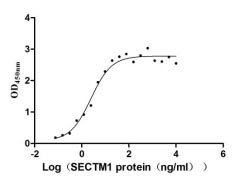
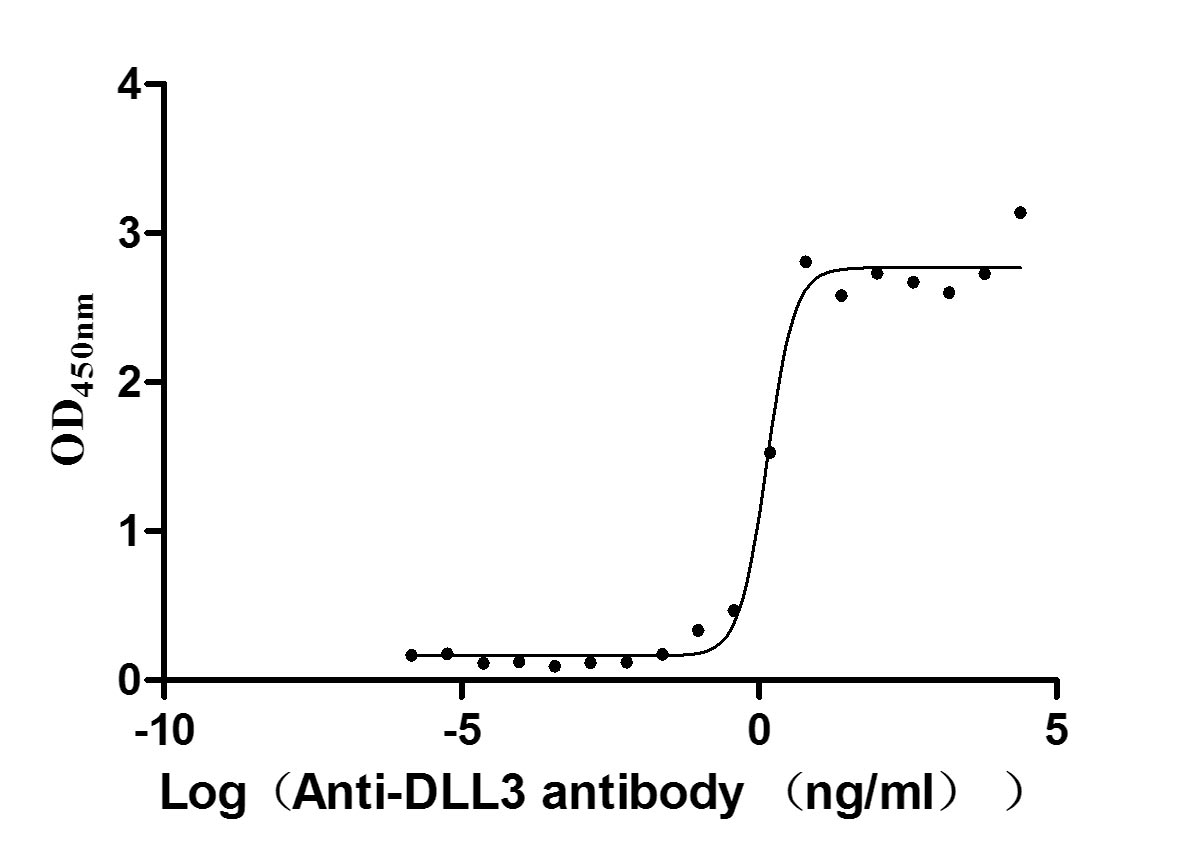
-AC1.jpg)
